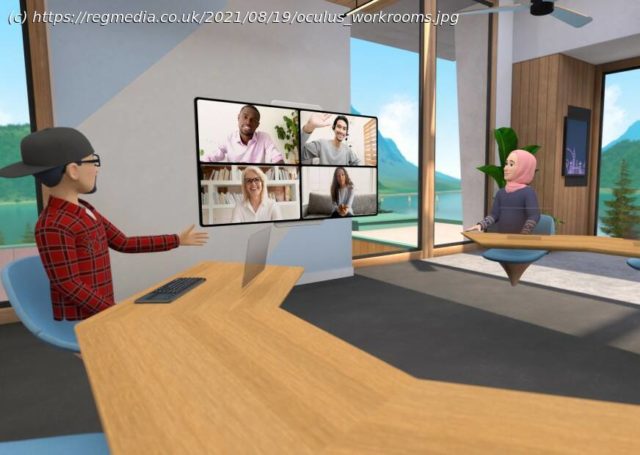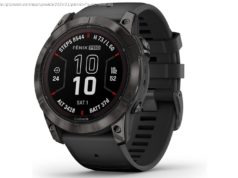Yes, it involves VR. Meanwhile, in the real world, the FTC would like a chat about competition
Facebook, a company perhaps not top of mind when it comes to enterprise applications, trust, or privacy, sees an opportunity to make the unloved video conferencing experience more convoluted, costly, and cartoonish. On Thursday, the social ad giant’s Oculus division, having recently recalled millions of itchy foam inserts in its Quest 2 VR headsets, introduced Horizon Workrooms, a virtual reality conferencing system. A suntanned Mark Zuckerberg even gave a interview to promote the concept of a Facebook metaverse. The service is available as a free download to anyone who has a Quest 2 face-hugger and can recall where the device was last abandoned, or to anyone inspired to buy the headweight for $299, once post-recall sales resume next week. „Workrooms brings some of our best new technologies together for the first time into one experience on Quest 2,“ the social network said in a blog post. „Using features like mixed-reality desk and keyboard tracking, hand tracking, remote desktop streaming, video conferencing integration, spatial audio, and the new Oculus Avatars, we’ve created a different kind of productivity experience.“ „Different,“ while hardly Apple-level hyperbole, may be enough to convince Zoom haters – the majority of video conferencing users in multiple surveys – to give masked conferencing a shot. How could it be worse, right? But „different“ doesn’t explain why adding an animation layer and obscuring the subtle social cues of human expression will improve the experience of remote interaction on a screen. Youtube Video Horizon Workrooms, demonstrated in the marketing video above, will let you „bring your physical computer, keyboard and desk into VR with you,“ so you’ll be able to see graphic depictions of those devices in the virtual scene. Only select keyboard models can be presented thus, however. Also not supported are legs, at least in sitting mode: images of avatars representing meeting participants include heads, arms, and torsos only as depicted in virtual meeting screenshots. It’s unclear, however, how the inclusion of computers and peripherals in the scene, or limbs for that matter, will make virtual meetings more productive. Horizon Workrooms also promises the ability to „seamlessly write and draw on the shared whiteboard by flipping your controller to use it like a pen“ and to use spatial audio „create the feeling of a shared location.
Start
United States
USA — software Trust Facebook to find a way to make video conferencing more miserable...






